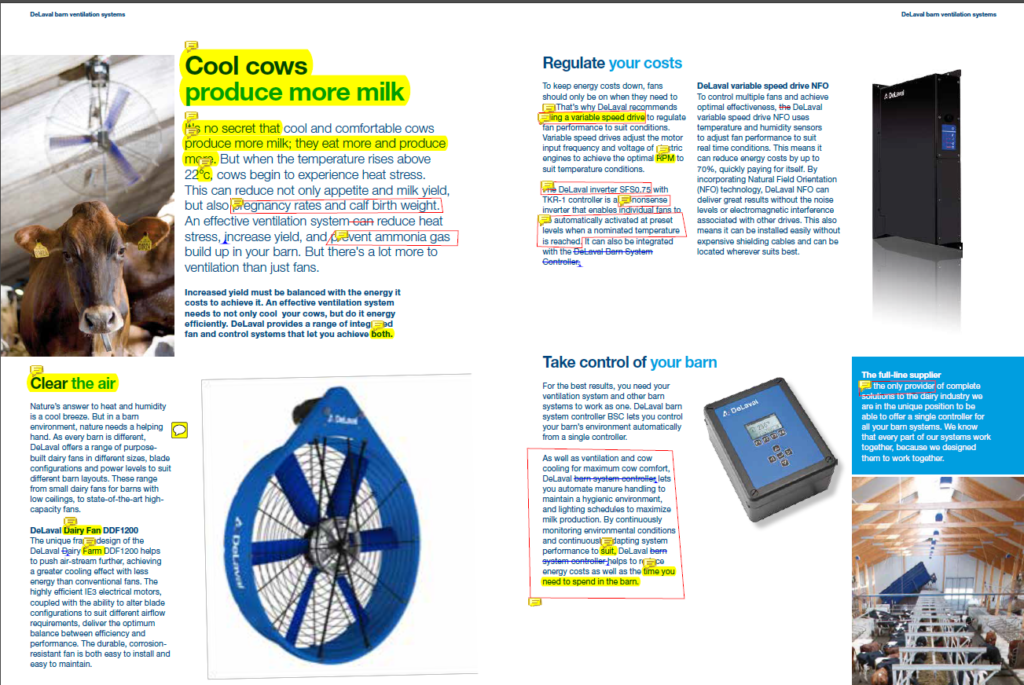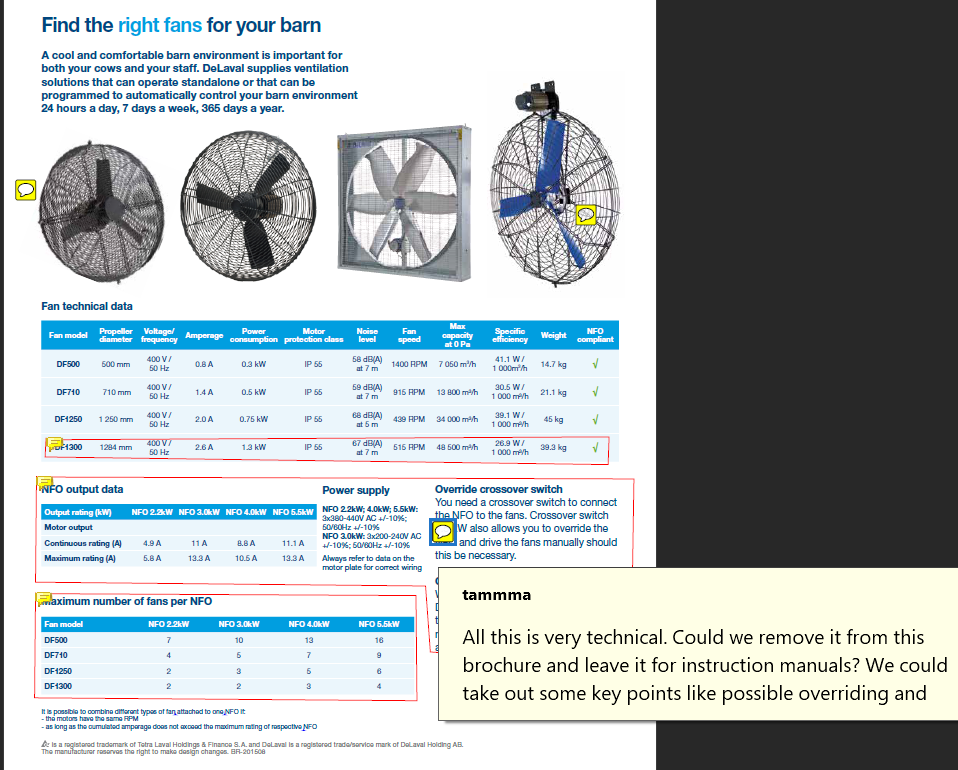
Being a project manager is more than just forwarding the emails, begging people to do their work in time as promised and comforting creatives with hurt feelings. It is often all that, but also much more. At least when you are dealing with a professional person who cares about their job.
I can tell you mostly based on how I work, but I hardly ever forward any email without adding a fair share of useful input from myself first. Take a look at the PDF full of comments or click here if you are curious about what was actually said.
Before I send any draft to a product specialist to fact check (and often get other opinions on), I carefully go through the thing myself, evaluating:
- Sticking to brief
- Structure and logic
- Potential threats and fact mistakes
- Complicated and confusing phrasing
- Flow of things
- Image choice
- Sticking to brand guidelines
- Laws and much more up to typos.
I’d like to think that the creative agency will fix many of those things before sending any draft to the customer to review, but there are almost always errors, no matter how frustrating it is. Plus if I don’t point out things I am not happy with every correction round, the agencies can later treat them as extra work and cost since we didn’t flag them sooner (while we might have thought that some work will be done as final touches).
THEN I send the already commented/edited draft to product specialists, often with questions to answer.
On a later stage I will probably gather also feedback from the brand manager and perhaps some other communication specialists.
Before I return any draft to the agency for improvements, I have to make sure that all questions are answered and feedback is in an agreed format and all together, and everything makes sense to me at least (then there is hope that it makes sense to agency people as well). I’ll have to check that we don’t give contradictory orders and that our requests are as concrete as possible and politely phrased (even if we feel like screaming). That might mean a few more clarification rounds in house first and asking different experts to agree or back off. It means also explaining and selling my view points to them.
And then I can finally forward the things to our agency only to wait for another draft and the process starts all over again with me checking if all our previous remarks were taken into account or discarded with a good explanation.
On an extra simple case we will have about three drafts. A bigger and more complicated thing might take even 20 (especially if content comes in in pieces).


